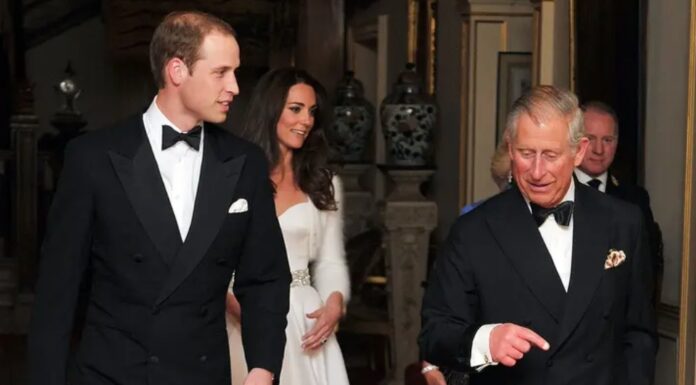A royal author says the King told his son, “I neglected my marriage, and look what happened.”
Parents pass down wisdom to their kids whenever they can and King Charles is apparently no exception.
The monarch made a point to have a heart-to-heart with his oldest son, Prince William, ahead of his wedding to Kate Middleton to caution him to avoid a marital mistake Charles himself made, according to royal expert and author Ingrid Seward.
“[His father] said, ‘Look, William, there’s nothing more important than your family,’” Seward said, according to the New York Post.
The idea that family is the most important thing there is might sound a little generic, but Seward also claimed that Charles offered up some more personal advice, too.
“’Don’t make the mistakes that I made,’” Seward said Charles told Will. “I just did duty, duty, duty. I neglected my marriage, and look what happened.’”
Charles has been happily married to Queen Camilla (formerly known by the title Duchess of Cornwall before Charles became King) since 2005, but his first marriage, to Will’s late mother, Princess Diana, was infamously fraught and the King’s advice seems to refer to mistakes he made during that union.
In fact, by the time Charles and Diana decided to end their marriage, things had devolved to the point that a reporter covering the pair’s visit to South Korea in November 1992 said there was a “hatred that radiated between the two” on the trip, according to a report from Express.
That would ultimately be their last official trip together; Charles and Diana officially announced their separation a little more than a month later in December 1992.
Longtime royal photographer Arthur Edwards said later that it was obvious during the couple’s tour of Korea that they were “miserable” with each other and the marriage was ending.
“It was only when we went to Korea, the last tour, when you knew it was all over then because they couldn’t bear to be in each other’s company. It was so miserable,” Edwards said. “The tour was called the Glums’ tour, and that was so miserable. And a month later the Prime Minister announced in the House of Commons, and I suppose no one was then surprised, we watched them in Korea.”
After the separation, Diana would go on to speak about experiencing loneliness and feeling neglected in the marriage (including discussing Charles’ affair with his now-wife, then known as Camilla Parker-Bowles, in her controversial BBC Panorama interview in 1995) and over the years, royal experts have suggested Charles putting duty ahead of Diana’s feelings as a key problem in the relationship.
Elizabeth Holmes, author of HRH: So Many Thoughts on Royal Style, told Us Weekly that Charles and Diana’s marriage was “almost like a business transaction” and that the then-prince may have been most attracted to the idea of Diana, who “checked so many boxes and sort of slotted right in, and was clearly very eager and willing and wanting to please.”
Holmes also said that the couple’s notably short courtship (Charles had only met Diana twice when he began pursuing her romantically in July 1980, just one year before they married in a lavish royal wedding in July 1981) “sort of speaks to how [Charles] was approaching this and the pressures that he was feeling. … It was sort of like a formality, almost.”
Whether Charles directly advised Will against a short engagement or not isn’t clear, the prince was determined not to repeat that mistake in his own marriage and took the opposite approach in his relationship with Kate Middleton, whom he dated for almost a decade before popping the question.
According to royal author and expert Katie Nicholl, Will took things slow to avoid putting Kate in the same position his mother ended up in by rushing into a royal marriage.
“Before William asked Kate to marry him, he wanted to be sure it was what she really wanted. By living together, Kate could decide whether it was, and as William later recalled ‘back out’ if it wasn’t,” Nicholl wrote in her book Kate: The Future Queen, later adding, “Forever scarred by the pain of his parents’ divorce, it was essential to William that when he married, it would be for life.”















